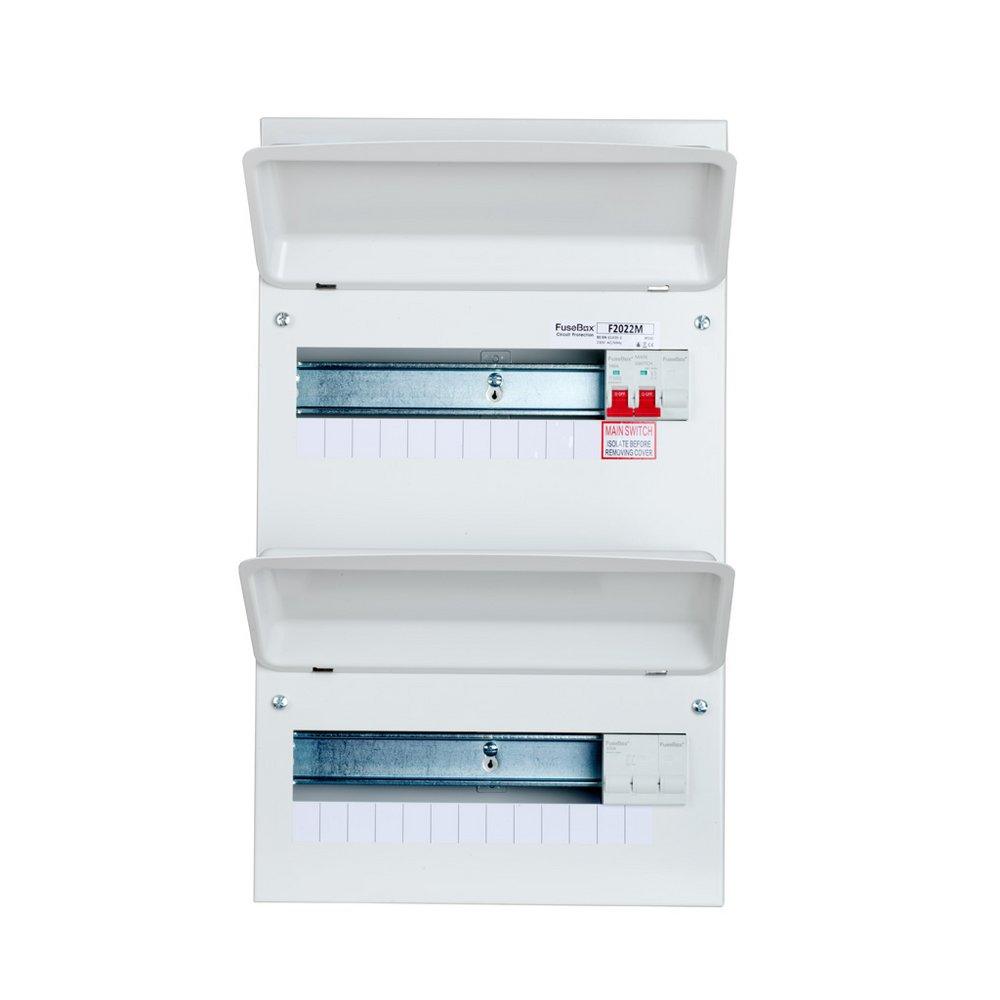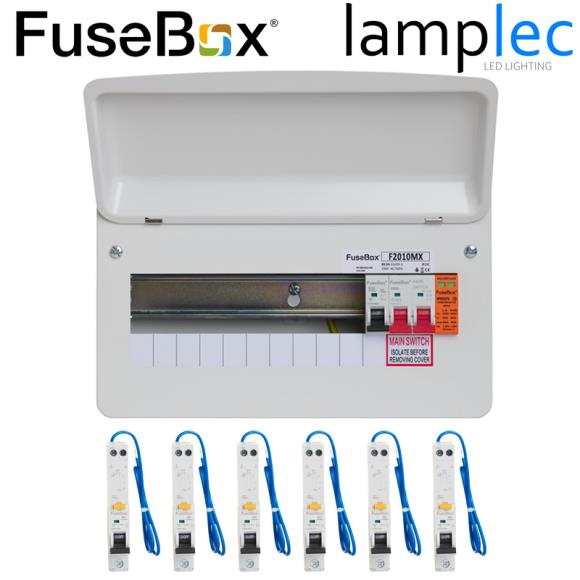Why Updating to Advanced RCBO CONSUMER UNITS is Crucial for Safety
Why Updating to Advanced RCBO CONSUMER UNITS is Crucial for Safety
Blog Article
The Function of Customer Units in Efficient Energy Monitoring Equipment
Customer systems are important to reliable energy management systems, working as the main circulation points for electric power within frameworks. By incorporating circuit breakers, they safeguard circuits from potential overloads, therefore keeping security and preventing extensive blackouts. The arrival of clever innovations has further improved their performance, enabling real-time information surveillance and nuanced energy intake analysis. This assimilation not only enhances energy usage yet also helps with the incorporation of eco-friendly power resources, consequently promoting sustainable techniques. How, after that, do these developments convert to tangible advantages in day-to-day energy administration?
Comprehending Consumer Units

Understanding the role of customer units begins with recognizing their essential function in guarding electrical systems. By isolating faults within certain circuits, customer devices avoid extensive outages and prospective fire risks. This isolation is achieved via making use of breaker that journey or fuses that strike when a fault is discovered, therefore removing the electric circulation to the affected circuit.
Moreover, consumer systems assist in the orderly circulation of power, improving the performance of energy use. They enable the systematic administration of electrical loads, which can be especially vital in commercial and industrial settings where demand can fluctuate significantly. Correctly maintained customer systems add to the long life of electric systems and aid in reducing downtime triggered by electrical failings, ultimately sustaining the smooth operation of energy-dependent facilities.
Smart Technologies Integration

A vital advantage of smart customer units is their ability to take advantage of advanced algorithms and artificial intelligence for predictive analytics. This enables preemptive changes based on usage patterns, weather projections, and various other variables, significantly raising overall performance. Clever customer systems promote demand action programs, where energy usage can be dynamically readjusted during height durations to stabilize the grid and minimize expenses.
The assimilation of eco-friendly power sources, such as solar and wind, is additionally streamlined with wise consumer systems. By intelligently taking care of the intermittency of these sources, these units make certain a balanced and reputable energy supply. Additionally, smart customer systems enhance user engagement by offering detailed understandings and push-button control capacities via mobile applications, cultivating an extra positive approach to energy preservation and sustainability.
Surveillance Energy Consumption
Building on the capabilities of clever modern technologies combination, checking power consumption comes to be a critical focus within power management systems. Effective monitoring works as the foundation for identifying power inadequacies and carrying out restorative procedures. By leveraging innovative metering infrastructure (AMI), real-time data on energy use can be accumulated at granular degrees, supplying important understandings right into intake patterns and peak demand periods. This data-centric approach makes it possible for both consumers and power managers to make informed choices aimed at lowering waste and improving her comment is here overall performance.
Smart meters and Net of Things (IoT) gadgets play a critical duty in this tracking procedure. These devices can track power usage in real-time, sending data to central systems for evaluation. The accumulated information is then refined through innovative algorithms to identify abnormalities, forecast future usage, and suggest optimization approaches. Furthermore, cloud-based services supply scalable platforms for storing and evaluating large datasets, helping with remote tracking and control.
The combination of these modern technologies not just empowers consumers with detailed details concerning their power use but likewise supports utility companies in managing tons circulation more properly. Inevitably, specific and continual tracking is vital for attaining power effectiveness, cost savings, and sustainability goals within power administration systems.
Optimizing Device Use

One efficient technique entails recognizing height and off-peak hours to change energy-intensive activities, such as washing or dishwashing, to times when power demand is lower. This not only lessens pressure on the grid yet likewise profits from reduced energy tolls. Additionally, incorporating artificial intelligence algorithms permits predictive maintenance, making certain appliances run at ideal effectiveness and extending their lifespan.
Energy management systems can additionally incorporate user-specific preferences and habits to customize home appliance usage schedules. For instance, wise illumination systems can adjust brightness based upon occupancy and all-natural light availability, while a/c systems can keep comfort degrees without extreme energy usage.
Promoting Sustainability
Promoting sustainability within energy management systems includes not just enhancing performance however additionally fostering ecologically accountable methods. Customer devices are important to this procedure, as they offer real-time data find more info and control systems that enable customers to keep an eye on and minimize their power usage. By leveraging innovative innovations, customer devices can determine energy-saving possibilities and help with the combination of eco-friendly power sources like solar and wind power.
One important facet of promoting sustainability is informing customers on the benefits of liable energy use. Through in-depth understandings supplied by consumer devices, users can make enlightened decisions that decrease their carbon footprint. For example, these units can advise ideal times for running high-energy devices based on grid demand and renewable resource accessibility, consequently minimizing dependence on nonrenewable fuel sources.
Moreover, customer units support the fostering of smart grid technologies, which boost the overall performance and dependability of energy circulation. By enabling two-way communication between customers and energy companies, these systems can dynamically get used to energy needs, decreasing waste and promoting making use of lasting energy practices.
Conclusion
Customer systems, as indispensable parts of power administration systems, substantially boost electric safety and efficiency within buildings via circuit security and wise innovation assimilation. Furthermore, the incorporation of eco-friendly energy sources promotes sustainable techniques, adding to decreased general power consumption and lower carbon footprints.
Advances in wise modern technologies have reinvented the capabilities of power management systems, specifically with the combination of wise consumer units.Building on the capacities of clever innovations combination, keeping an eye on view it now energy consumption comes to be a critical focus within energy management systems.Effective appliance usage optimization is a vital element of energy monitoring systems, aiming to enhance effectiveness and lower unnecessary energy consumption.Consumer units, as important parts of energy monitoring systems, considerably boost electrical safety and security and effectiveness within structures through circuit security and clever modern technology assimilation. In addition, the incorporation of eco-friendly energy sources promotes sustainable practices, contributing to reduced total energy usage and lower carbon footprints.
Report this page